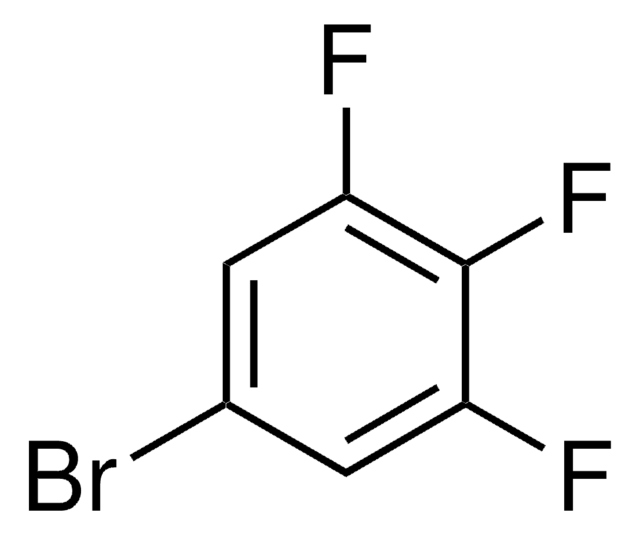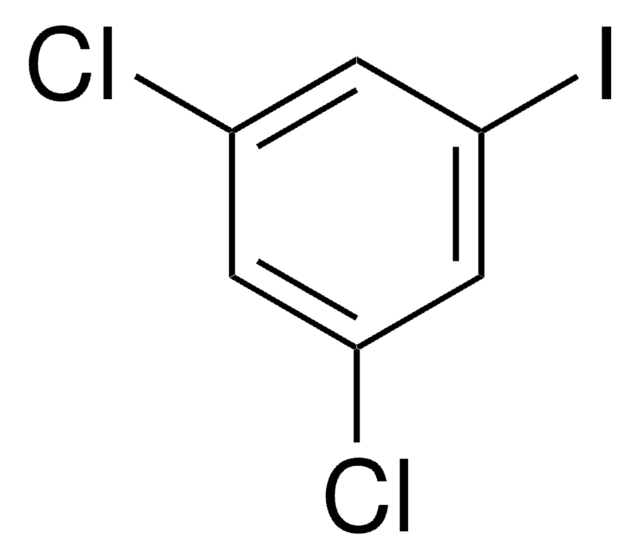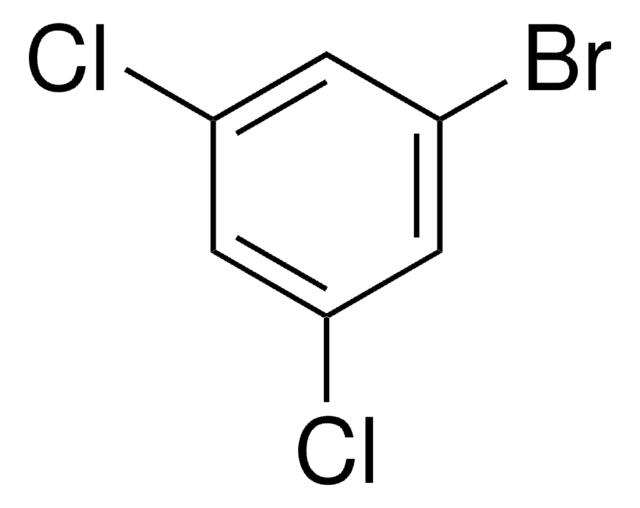T54607
1,3,5-Trichlorobenzene
99%
Synonym(s):
Symmetrical trichlorobenzene, s-Trichlorobenzene
About This Item
Recommended Products
Quality Level
Assay
99%
form
powder or crystals
bp
208 °C (lit.)
mp
56-60 °C (lit.)
SMILES string
Clc1cc(Cl)cc(Cl)c1
InChI
1S/C6H3Cl3/c7-4-1-5(8)3-6(9)2-4/h1-3H
InChI key
XKEFYDZQGKAQCN-UHFFFAOYSA-N
Looking for similar products? Visit Product Comparison Guide
Application
- Bis(3,5-dichloro-4-pyridyl)(2,4,6-trichlorophenyl)methyl radical, a stable, photoluminescent organic radical.
- Solution-processable graphene quantum dots as light absorbers for photovoltaics.
- π-conjugated polydentate ligand, hexakis(2-pyridyl)dipyrazinoquinoxaline (HPDQ) as a highly selective on/off fluorescence sensor for cadmium (II) ions.
- Two-dimensional chlorine-substituted graphdiyne (Cl-GDY) as an electrode material for lithium-ion batteries.
Signal Word
Warning
Hazard Statements
Precautionary Statements
Hazard Classifications
Acute Tox. 4 Oral - Aquatic Chronic 2
Storage Class Code
11 - Combustible Solids
WGK
WGK 3
Flash Point(F)
224.6 °F - closed cup
Flash Point(C)
107 °C - closed cup
Personal Protective Equipment
Certificates of Analysis (COA)
Search for Certificates of Analysis (COA) by entering the products Lot/Batch Number. Lot and Batch Numbers can be found on a product’s label following the words ‘Lot’ or ‘Batch’.
Already Own This Product?
Find documentation for the products that you have recently purchased in the Document Library.
Customers Also Viewed
Our team of scientists has experience in all areas of research including Life Science, Material Science, Chemical Synthesis, Chromatography, Analytical and many others.
Contact Technical Service












